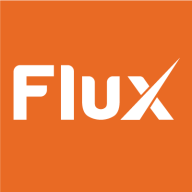


Flux and Tidal by Redwood are competing products in the technology market. Tidal by Redwood appears to have the upper hand due to its advanced feature set and tailored solutions, despite a higher cost.
Features: Flux offers data integration capabilities, real-time analytics, and practical features for immediate needs. Tidal by Redwood provides sophisticated predictive analytics, customization options, and comprehensive capabilities for long-term improvements.
Ease of Deployment and Customer Service: Flux provides straightforward deployment and responsive customer service, facilitating quick adoption. Tidal by Redwood requires more complex implementation but compensates with dedicated support channels for smoother transitions.
Pricing and ROI: Flux is recognized for cost-effective setup and quick realization of ROI, appealing to those seeking immediate returns. Tidal by Redwood demands a higher upfront investment but offers strong ROI over time through increased efficiency and tailored solutions.
| Product | Market Share (%) |
|---|---|
| JAMS | 2.6% |
| Tidal by Redwood | 4.7% |
| Flux | 0.7% |
| Other | 92.0% |
| Company Size | Count |
|---|---|
| Small Business | 11 |
| Midsize Enterprise | 8 |
| Large Enterprise | 18 |
| Company Size | Count |
|---|---|
| Small Business | 3 |
| Midsize Enterprise | 6 |
| Large Enterprise | 38 |
JAMS is an automation and job scheduling solution designed for workflow optimization, catering to businesses large and small with flexible licensing and integration options.
Offering both Core and Advanced packages, JAMS supports a range of environments from small teams to large-scale operations. Its standout features include integration with platforms like PowerShell, SQL, and SAP, coupled with capabilities such as dependency management and natural language scheduling. JAMS simplifies job management, centralizes workflows, and boosts productivity with its robust automation features. Customizable workflows and insightful logging make it adaptable for diverse needs, supported by responsive customer service ensuring seamless operations.
What are JAMS's key features?In industries, JAMS is employed for automating workflows and managing batch jobs. Organizations utilize it for SSIS, SQL Server tasks, file transfers, and integrating with vendor systems, achieving efficient file automation and data management. Scheduler enables precise execution of thousands of tasks daily, enhancing operational efficiency.
Flux is a technology-driven tool designed to optimize workflow management, offering an agile approach and seamless integration to enhance project execution for businesses.
Designed for teams aiming to streamline processes, Flux provides robust features supporting efficient data flow and task management. Its architecture enables users to track projects, automate tasks, and improve communication among team members. The platform's comprehensive analytics offer insights, driving effective decision-making and boosting productivity.
What are the key features of Flux?Flux finds applications across industries such as finance, healthcare, and IT, where workflow automation is crucial. By tailoring automation and analytics, companies achieve marked improvements in operational efficiency, adapting processes for specific industry demands and ensuring compliance with sector standards.
Tidal Software is a leading provider of enterprise workload automation solutions that orchestrate the execution of complex workflows across systems, applications and IT environments. With a comprehensive portfolio of products and services, Tidal optimizes mission-critical business processes, increases IT cost efficiencies and satisfies legal and regulatory compliance requirements. Hundreds of customers around the world count on Tidal for modernizing their workload automation and driving their digital transformation. Tidal Software is headquartered in Chicago with offices in Houston, London, Minsk, Belarus and Chennai, India. For more information, visit tidalsoftware.com.
We monitor all Workload Automation reviews to prevent fraudulent reviews and keep review quality high. We do not post reviews by company employees or direct competitors. We validate each review for authenticity via cross-reference with LinkedIn, and personal follow-up with the reviewer when necessary.